ABOUT US
"Reducing Pesticide Use for Environmental Sustainability and Raising Farmers' Awareness on Alternative Control Methods; Safe Food for Consumers"
The aim of this project is to prevent the uncontrolled and indiscriminate use of pesticides in the agricultural sector, a serious problem today. It also aims to inform farmers about alternative control methods and to inform and guide them on export regulations and pesticide analyses. Thus, the primary motivation for our project is to encourage farmers to use pesticides in a controlled and minimal manner for both environmental sustainability and safe food production.
The project aims to produce intellectual outputs aimed at this clear goal, while also raising awareness and educating consumers about the proper removal of pesticides from market-bought food before consuming it at home.
As is well known, the use of chemical pesticides to protect against weeds, insects, bacteria, and viruses in agricultural production is a widespread practice worldwide. Of the approximately 4 million tons of pesticides used globally, only a very small amount, approximately 1%, affects the targeted pest, while the remaining amount causes persistent chemical pollution in the ecosystem. In proportion to the growing human population, the use of pesticides has increased to meet the demand for agricultural products. More than 600 agrochemicals are used for this purpose worldwide.
On the other hand, controlled pesticide use provides the greatest benefit in achieving high yields. Pesticides and pesticides are indispensable for increasing agricultural productivity. It is important to understand that chemical accumulation in the environment and water bodies beyond controlled use can be quite harmful. The use of pesticides for increased agricultural productivity is not a recent discovery. It is known that the Sumerians, Greeks, and Romans used sulfur, mercury, arsenic, and copper in agriculture.
Currently, annual production of pesticides used in agricultural pest control is approximately 4 million tons. According to data from the Turkish Statistical Institute, 60,000 tons of agricultural chemicals were used in our country in 2018 (TÜİK, 2019). The uncontrolled use of these pesticides, also known as pesticides, poses a direct and indirect threat to human health due to their impact on non-target organisms, their persistent accumulation in the environment, and their residues on food consumed by humans. In addition to affecting human health, they also alter the characteristics of the environment and soil. This harmful change also impacts the quality and sustainability of agriculture.
As the Department of Food Engineering at Gaziantep University, we have formed a strong academic consortium with the Food and Feed Control Central Research Institute, affiliated with the Ministry of Agriculture, which has extensive research on pesticides in Turkey, and two universities with expertise in this field, from Romania and Lithuania. We will develop solutions to the aforementioned problem and provide training to the target audience.
Our project was funded by the Turkish National Agency with the code 2025-1-TR01-KA220-VET-000349539.
Safe Food, Sustainable Future
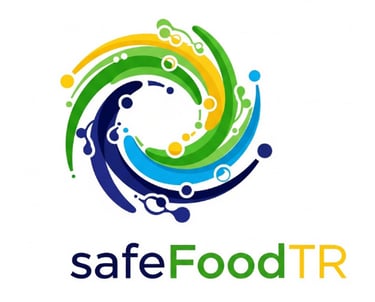

Coordinator
Our university, named after Gaziantep, which is the trade and industrial center of our region, began its educational activities in 1973 with the Department of Mechanical Engineering, established as part of the Middle East Technical University (METU) Faculty of Engineering. With the opening of the Department of Electrical Engineering in 1974, these two departmentswere transformed into the Gaziantep Faculty of Engineering. In the same year, theDepartments of Basic Sciences and Languages were established, and in 1977, the Departmentof Applied Chemistry was added. In 1981, the Department of Civil Engineering was founded, and in 1982, the Department of Applied Chemistry was transformed into the Department of Food Engineering, while the Department of Basic Sciences became the Department of Physics Engineering.
On June 27, 1987, with Law No. 3389, the Faculty of Engineering, together with newlyestablished faculties and schools, gained legal entity status as Gaziantep University.
Since its foundation, Gaziantep University has rapidly advanced in its development, expanding to surrounding provinces and districts, and enabling the establishment of newuniversities through the separation of its faculties and schools. Over the years, Harran University, Kahramanmaraş Sütçü İmam University, Adıyaman University, and mostrecently, Muallim Rıfat Faculty of Education, Kilis Faculty of Arts and Sciences, Yusuf Şerefoğlu School of Health, and Kilis Vocational School separated from our university andformed the academic units of Kilis 7 Aralık University.
With its strong academic staff, physical infrastructure, and social and cultural opportunities, our university continues to move forward with firm steps toward becoming a world-classinstitution. Gaziantep University stands out with its pioneering projects such as the InternshipEducation Model, University-Industry Cooperation, and Social Responsibility Projects, serving as an exemplary institution for other universities in Türkiye.
Gaziantep University is an international institution, leading its region with its scientific andartistic activities, and providing education in three languages through its faculties establishedin secure zones of Syria.
The language of instruction in the Faculties of Engineering, Architecture, and Aviation andSpace Sciences is English, while the Faculty of Medicine offers both Turkish and English programs. In the Faculty of Theology, Arabic is compulsory, while the Faculty of Economicsand Administrative Sciences offers optional preparatory programs. In addition, 12 programsare taught in Arabic, making Gaziantep University the only university in Türkiye that offerseducation in three languages (Turkish, English, and Arabic).
Currently, our university consists of 20 Faculties, 5 Institutes, 2 Schools, and 11 VocationalSchools. In 2019, the total number of departments and programs accepting students acrossfaculties and schools reached 146.
Faculties: Faculty of Engineering, Faculty of Medicine, Faculty of Arts and Sciences, Facultyof Economics and Administrative Sciences, Faculty of Education (Gaziantep), Faculty of Dentistry, Faculty of Architecture, Faculty of Economics and Administrative Sciences(İslahiye), Faculty of Fine Arts, Faculty of Health Sciences, Faculty of Education (Nizip), Faculty of Law, Faculty of Theology, Faculty of Communication, Faculty of Aviation andSpace Sciences, Faculty of Tourism, Faculty of Education (Afrin, Syria), Faculty of IslamicSciences (Azez, Syria), Faculty of Economics and Administrative Sciences (Al-Bab, Syria), Faculty of Sport Sciences.
Institutes: Institute of Natural Sciences, Institute of Health Sciences, Institute of SocialSciences, Institute of Educational Sciences, and Migration Institute.
Schools: Turkish Music State Conservatory, School of Foreign Languages.
Vocational Schools: Vocational School of Technical Sciences, Vocational School of SocialSciences, Vocational School of Health Services, Nizip Vocational School, Oğuzeli VocationalSchool, School of Tourism and Hotel Management, Naci Topçuoğlu Vocational School, İslahiye Vocational School, Nurdağı Vocational School, Araban Vocational School, andJarabulus Vocational School (Syria).
Our university offers education in modern and contemporary environments with advancedlibrary facilities, state-of-the-art laboratories, and an extensive computer network infrastructure.
Within the Department of Health, Culture, and Sports, and located on campus, our studentsbenefit from wrestling and fitness halls, table tennis, artificial turf and grass football fields, athletics tracks, a semi-Olympic outdoor swimming pool, six outdoor basketball courts, ten outdoor volleyball courts, three tennis courts, and a 500-seat indoor sports hall.
GAÜN Sporium, the first university sports complex in Türkiye certified by TSE, is also thelargest and most comprehensive sports complex in the country, serving both students andstaff.
Our social and cultural activities are carried out through 82 student clubs that organize variousevents.
The total area of our university, including the main campus, district campuses, andexpropriated lands, currently covers 3,446,113 m². The total indoor area of buildings andfacilities, including district faculties, vocational schools, and the Şahinbey Research andApplication Hospital Polyclinic Building, covers 333,029 m².
Gaziantep University
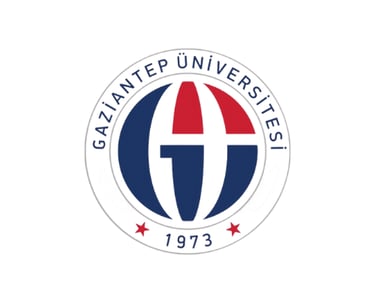

Partners
Central Research Institute of Food and Feed Control (CRIFFC), affiliated with the General Directorate of Agricultural Research and Policies (GDAR), Ministry of Agriculture andForestry of the Republic of Turkey, provides services with an expert staff in a complete teamspirit, based on the principle of meeting customer demands in a timely, reliable, and impartialmanner. Our institution aims to achieve continuous growth and become a leader in its field bykeeping up with technology.
The institution's clients consist of public institutions and organizations, primarily theProvincial and District Directorates of the Ministry of Agriculture and Forestry in Bursa andthe surrounding provinces, as well as private sector companies where food industry andagricultural production activities are intensively carried out. In line with the mission assignedby its affiliated Ministry, our institution conducts research and analysis services on food, feed, water, aquatic products, and food contact materials.
While aiming to be the highest quality, fastest, and most reliable in these services, ourinstitution acts with customer-oriented strategies. Samples submitted to our institution areclassified according to the purpose of analysis as import, export, inspection, special request, and other control.
CRIFF conducts research demanded by the food sector in collaboration with GDAR(General Directorate of Agricultural Research and Policies), TÜBİTAK, universities, the private sector, and international organizations.
CRIFF was accredited by the Turkish Accreditation Agency in 2004 according to the TS EN ISO/IEC 17025 standard and has increased its number of accredited analyses each year. In2023, it successfully completed the review and on-site audit conducted by the HalalAccreditation Agency (HAK) and was accredited in accordance with the OIC/SMIIC 35:2020 Standard.
In our internationally accredited laboratory, analyses of import, export, inspection, and specialrequest samples are performed using appropriate technologies. Additionally, national andinternational research services on food, feed, and water are carried out. In this way, ourinstitution continuously contributes to the consumption of quality, safe, and healthy food bythe public.
Central Research Institute of Food and Feed Control
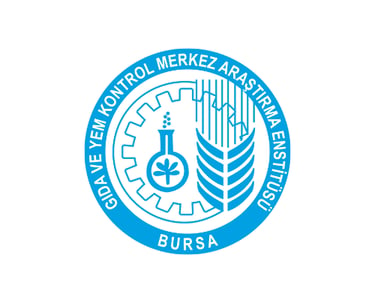

Partners
Kaunas University of Technology (KTU) is an internationally competitive, interdisciplinaryuniversity of technology that creates and transfers knowledge and innovation. KTU is a leading Lithuanian university providing a wide range of studies and closely cooperating withbusiness. The University provides studies of engineering, technologies, physical and socialsciences, humanities and arts.
The research groups working at KTU contribute to the global scientific knowledge byconducting cutting edge interdisciplinary research on the most important questions of currenttime.
The University’s mission is to provide the research-based studies at international level; todevelop and to transfer knowledge and innovative technologies for sustainable development; to create an open creative environment which inspires talents and leaders.
The University’s vision – leading European university which activities are based on development and transfer of knowledge and technologies.
The University’s strategy is based on KTU traditions and strengths – links with industry, widerange of studies and scientific research related to technologies, aligned with the needs of thecountry and international development trends. The objective of the University’s strategy is tobecome a leading university, competitive in the international space.
In the academic year 2024-2025, there were 7408 students, 4906 of them were bachelor'sstudents, 2013 – master's students, 93 – students of integrated studies, 332 – doctoral studentsand 64 –students of professional studies. There were 986 foreign students, including 872 students aiming to acquire a qualification degree and 114 part-time students. Student mobility: 115 outgoing students of partial studies and internships, and 195 incoming students of partialstudies and internships.
Currently, KTU has 1875 employees, including 807 academic employees (168 professors, 344 associate professors, 9 teachers, 1 senior teacher, 15 junior assistants and 134 assistants). The achievements of teachers and researchers have been recognised by the membership of theLithuanian Academy of Sciences, international and national institutions and organisations, honorary doctorates and various awards.
Research-based study programmes of KTU are developed in cooperation with allstakeholders: teachers, researchers, students and business partners. 99 study programmes areopen for admission, including 42 bachelor's programmes, 55 master's programmes, 1 studyprogramme of integrated studies, 1 professional study programme in pedagogy, and 20 – fordoctoral studies. KTU offers 48 bachelor’s and master’s study programmes in English; allPhD studies are conducted in English.
The structure and staff activities of the University are focused on research and innovations. In2024, 861 papers were published in peer-reviewed scientific journals or conferenceproceedings; 606 of them in scientific journals with an impact factor indexed in the ClarivateAnalytics Web of Science or Elsevier Scopus databases. KTU scientists and other researchersimplemented 97 international projects (21 projects under Horizon 2020, 17 projects under theEU Framework Programme for Research and Innovation "Horizon Europe", 2 projects underthe EU Research and Training Programme "Euratom", 2 projects under the EU Digital Europe Programme, 55 projects under other programmes). In 2024, the University's scientists andresearchers participated in 66 COST activities; 135 national research and innovation projectswere implemented.
One of the most important long-term objectives of KTU is ambitious steps outside theterritory of Lithuania and targeted works to make KTU better recognised in the internationalarena. Today, the University is a member of influential international organisations andassociations, such as the European University Association (EUA), the European Consortiumof Innovative Universities (ECIU), etc. KTU cooperates with more than 400 research andacademic institutions in 50 different countries around the world as well as internationalbusiness entities.
Kaunas University of Technology (KTU)
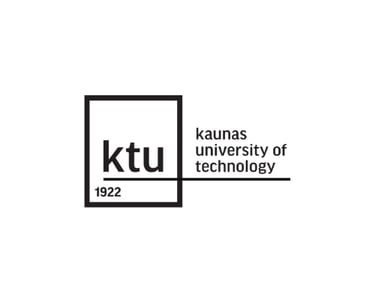

Partners
The University of Agronomic Sciences and Veterinary Medicine of Bucharest (USAMV Bucharest) is one of the most prestigious institutions of higher education in Romania, with a 173-year tradition in education and scientific research. Recognized for its contribution to the training of highly qualified specialists in the essential fields of engineering, biological and biomedical sciences, USAMV Bucharest offers a diverse range of study programs and academic opportunities for more than 12,000 students enrolled in bachelor's, master's and doctoral cycles.
The portfolio of study programs offered by the university includes 31 bachelor's programs, 33 master's programs, 7 scientific fields of doctoral studies, as well as bachelor's programs in foreign languages (for example, Veterinary Medicine in French or English, respectively Biotechnology in English), but also master's programs in food biosecurity, biotechnology and entrepreneurship. The students follow a process of theoretical and practical training, which allows the accumulation of cognitive and functional skills and transversal competences. Following the ARACIS institutional evaluation, the university attained a High Degree of Confidence rating for the period 2021-2026
The university campus, known as "Green CampUSAMV", is located in two central areas of Bucharest (Agronomy - Herastrau campus and Veterinary Medicine - Cotroceni campus) and covers an area of 40 hectares, being recognized not only for its natural beauty, but also for its active involvement in promoting sustainable practices. USAMV Bucharest is a leader in organic waste management and in promoting circular agriculture, providing an example of good practices. With dedicated teaching stations, such as the Moara Domnească Agronomic Research and Development Station and the Pietroasa-Istrița Viticulture and Fruit Growing Didactic and Research - Development Station, and with a Research Center for the Study of the Quality of Agri-Food Products, the university fulfills its role as a pioneer in research and innovation. USAMV Bucharest also owns the "Prof.univ.dr. Alin Bîrțoiu" University Emergency Veterinary Hospital, considered to be the elite unit in veterinary medicine in Romania, the first hospital in this field with permanent services. It represents a reference point for emergency veterinary medical assistance and a modern practical training center for students, consolidating the university's position as a leader in education, research and community services.
The University of Agronomic Sciences and Veterinary Medicine of Bucharest stands out for its active involvement in numerous national and international projects, carried out alongside prestigious partners from around the world, and its active involvement in international consortia. Through collaborations with over 150 universities and research institutions from various countries, USAMV Bucharest contributes to the development of scientific knowledge and the implementation of innovative solutions in agriculture, the environment and veterinary medicine. These projects range from advanced research in biotechnology and agricultural engineering to educational initiatives dedicated to sustainable development.
USAMV Bucharest plays an important role in the education of the community, annually organizing events and interactive workshops that attract over 10,000 students. The university campus hosts numerous annual events attended by over 50,000 visitors, as well as international conferences and academic exchanges. All these initiatives underline USAMV Bucharest's commitment to excellence in education, cutting-edge research and the promotion of sustainability values.
The University of Agronomic Sciences and Veterinary Medicine of Bucharest (USAMV Bucharest)
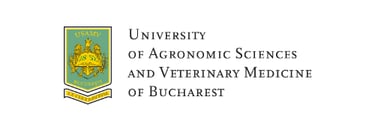

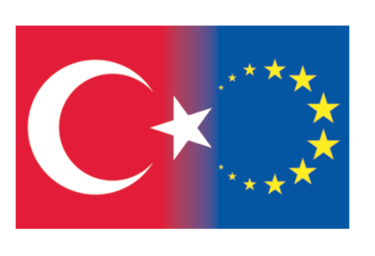
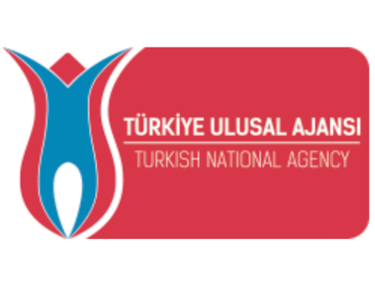
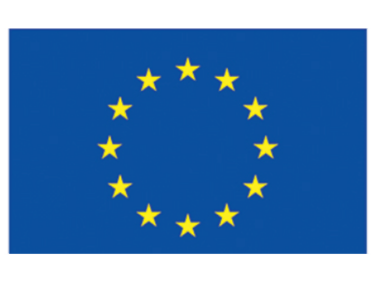
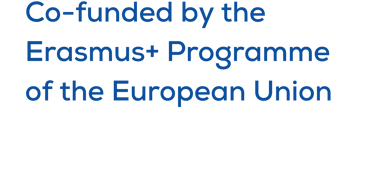

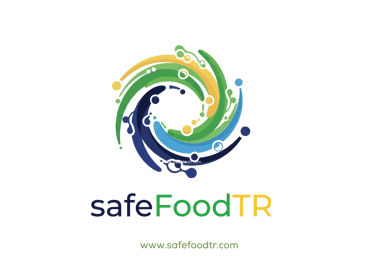

Contact Us
Adress
Gaziantep Üniversitesi 27310 Şehitkamil/Gaziantep
Contacts
+90 (342) 360 12 00
© 2025. All rights reserved.







